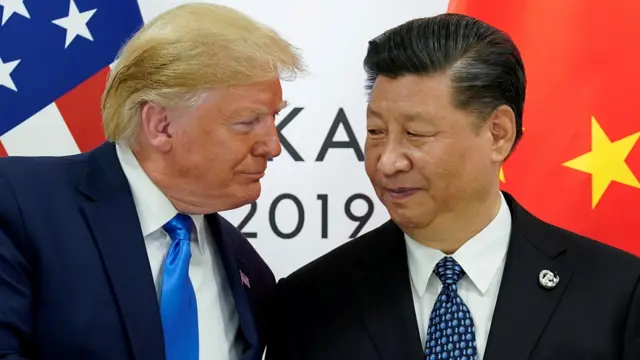China announced new tariffs on U.S. imports Tuesday in response to recently imposed U.S. duties on Chinese goods, escalating trade tensions between the world’s two largest economies.

China’s finance ministry said that beginning Feb. 10, the country will impose levies of 15% on U.S. coal and 10% on crude oil, farm equipment, and certain automobiles. The announcement came shortly after the U.S. implemented an additional 10% tariff on all Chinese imports at 12:01 a.m. ET.
The move marks a renewal of the trade war that began in 2018 under then-President Donald Trump, intensifying economic strain between Beijing and Washington. The tariffs follow Trump’s recent discussions offering Mexico and Canada 30-day reprieves on proposed tariffs.
Tariffs are taxes imposed on imported goods, typically calculated as a percentage of their value. Importers usually bear the initial cost, which is often passed on to consumers.
Trump has defended the tariffs, arguing they are necessary to curb the flow of fentanyl, a powerful opioid, from China to the U.S.—a claim Beijing disputes.
“China hopefully is going to stop sending us fentanyl, and if they’re not, the tariffs are going to go substantially higher,” Trump said Monday.
Economists warn that additional tariffs could lead to increased consumer costs and market uncertainty.
China has dismissed accusations regarding fentanyl and announced plans to challenge the U.S. tariffs at the World Trade Organization. The Chinese government also signaled its willingness to negotiate while preparing countermeasures.
As part of its response, Beijing has launched an anti-monopoly investigation into Alphabet Inc.’s Google and added U.S. firms PVH Corp. (owner of Calvin Klein) and biotech company Illumina to its “unreliable entities list,” which could impose fines and restrictions on these companies.
The U.S. has temporarily paused 25% tariffs on Mexico and Canada following discussions with Mexican President Claudia Sheinbaum and Canadian Prime Minister Justin Trudeau. Both leaders agreed to increase border enforcement measures to curb illegal migration and drug trafficking.
Canada will deploy additional personnel and technology along its border with the U.S. and implement measures against organized crime and fentanyl smuggling. Mexico will deploy 10,000 National Guard members to strengthen border security.
Should tariffs on Mexico take effect, American consumers could face higher prices for imported produce, alcohol, and auto parts. Tariffs on Canadian imports could impact steel, lumber, and grain prices.
Trump has suggested the European Union could be the next target for tariffs but has not provided a timeline. EU leaders, meeting in Brussels, warned they would retaliate if U.S. tariffs are imposed while advocating for diplomatic negotiations.



